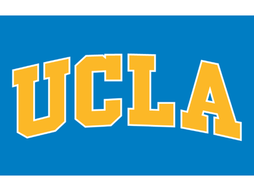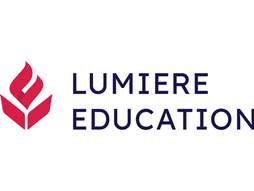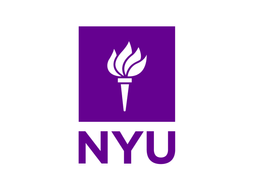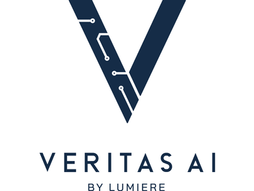Camp Cronkite: Summer Media Camp at ASU - Should You Apply?
If you’re a high school student keen on pursuing journalism, gaining some experience while still in school is a great place to start. Applying for an undergraduate program in journalism can be competitive, and doing a pre-college program can give you a step up. Admissions officers look for students who show drive and commitment to their chosen field, especially by taking part in programs alongside their school curriculum. There’s a range of opportunities for high school students interested in journalism, including programs and internships.
In this article, we’ll cover Camp Cronkite, a summer enrichment media camp, conducted by Arizona State University’s school of journalism and mass communication.
We’ve detailed the program’s key aspects, logistics, and a few compelling reasons why you should consider applying.
What is Camp Cronkite?
Camp Cronkite is a week-long immersive summer residential program designed for high school students who want to dive into the world of media and journalism. With a combination of learning sessions and team-building exercises led by Cronkite faculty, staff, and student guides, campers will build skills in reporting and writing, photography, multimedia journalism, audio, television, video editing, digital journalism, broadcast journalism, sports journalism, digital marketing, and more.
The camp includes portfolio-building and personal branding sessions, which will not only help with your college applications, but also come in hand when you’re building your career. As part of the program, students will tour news and television studios in Arizona. In the past, campers toured the Arizona PBS, ABC15 and 12News television studios, and attended the Arizona Diamondbacks and Phoenix Mercury games. The camp’s structured schedule combines classroom learning with real-world applications, ensuring a well-rounded understanding of the media industry.
The program is conducted at ASU’s Downtown Phoenix campus, and for the duration of the camp, students will stay at the Gordon Commons residential hall, located next to the Cronkite Building.
How is Camp Cronkite structured?
Camp Cronkite will be conducted June 23-25 at the Arizona State University campus in Downtown Phoenix.
Applications will open in early January, and will be due by April 1.
Who is eligible to apply?
The camp is open to all high school students (grades 9-12). Rising freshmen are not eligible. Students’ academic performance and interest in media are key factors in your acceptance into this program. At times, if the number of applications is high, the program might prioritize high school juniors.
Application Process
The application process requires the submission of an online application form, a personal statement, and possibly samples of the applicant's work. You will be notified if you’ve been accepted by May 1.
Fee & Financial Assistance:
The camp fees for this year are $699. This includes meals, housing, instruction, activities and use of computerized classrooms and other university facilities.
Need-based scholarships are offered. In order to apply for financial aid, you will need to complete the financial need information within the camp application. You will be notified if you’ve been selected for a scholarship along with your camp acceptance notification. Please note, the scholarship will not cover the travel costs of getting to and from the camp.
Faculty:
The program boasts a faculty comprising seasoned journalists, media professionals, and ASU faculty members, who bring a wealth of industry knowledge and real-world insights to the camp, enhancing the overall learning experience for participants.
What does Camp Cronkite cover?
One of the reasons this program stands out is its commitment to hands-on learning. Campers are not confined to traditional classroom settings but actively participate in real media activities. From creating multimedia content to exploring newsrooms and honing sports photography skills, students gain practical experience across a range of media techniques, while also being trained and honing their skills in various media subjects.
The program prides itself on offering a diverse array of elective sessions, allowing students to tailor their experience to their specific interests. Whether that’s exploring graphic motions or going behind the scenes at a news studio, you will leave the program with tangible media skills and a bolstered professional portfolio.
The program maintains an intimate cohort size. Although they don’t specify the exact number of students accepted every year, it is a fairly competitive program as they receive a huge number of applications and only a few are accepted.
Participating in a program with a relatively small cohort fosters a collaborative environment where you can actively participate in discussions, network with peers, and build lasting connections with both faculty and industry professionals. This personalized approach enhances the overall learning experience.
What does a typical day at Camp Cronkite look like?
A typical day at Camp Cronkite will consist of classroom learning sessions along with other exciting activities. Here’s how a day at the camp might look like:
8:00 am: Breakfast buffet in the Gordon Commons dining hall
9:00 am: All-camp morning meeting
9:15 am: Community challenge (team building exercises)
10:00 am: Core session – Audio collection
11:00 am: Core session – Portfolio and personal branding session
12:00 pm: Lunch buffet
1:00 pm: Core session – Narrative writing and reporting
2:00 pm: Elective session – Vocal delivery
2:45 pm: Snack break
3:00 pm: Elective session – Sports photography
4:00 pm: Down time in Gordon Commons
5:00 pm: Dinner buffet
6:00 pm: Walk to the Mercury game at Footprint Center
9:00 pm: Campers arrive back at Gordon Commons
10:00 pm: Lights out
Pros & Cons
Pros:
You will receieve ands-on learning opportunities: Camp Cronkite provides a diverse range of hands-on experiences, from visiting news and television studios to actually practicing broadcast journalism. Learning beyond the classroom can give you a definitive advantage.
2. You will be able to enhance your college applications and portfolio: When you take the added effort of participating in camps, programs or internships before college, it shows admissions officers that you’re dedicated to your subject and driven to learn and build skills in your chosen field. This is something that they value. The knowledge you’ll build during the program enhances your resume and will come in hand during your further education. Moreover, the program offers portfolio-building and personal branding sessions, which will help when it comes to college and job applications.
3. You can make the best out of networking opportunities: During the program, you will interact with students who are similarly interested in media and journalism, building connections with industry professionals and faculty, and creating a network that can last a long time.
4. You will get a glimpse into college life: Since this is a residential camp where you’ll be staying on campus for its duration and attending classes there, it will give you a good insight into what life is like as a college student. You will also learn to live independently, which is a key part of your personal growth.
5. Comprehensive electives are offered: The elective sessions cover a wide array of topics, ensuring that students can tailor their experience to their specific interests and career goals. While the final list of electives will be provided when you enroll in the program, some elective examples from the past are: vocal delivery, sports photography, graphic motions, and newsroom tours.
Cons:
It is a fairly selective program: This journalism camp is quite sought-after, and receives hundreds of applications each year. Only a number of applicants are accepted. If you get accepted, that’ll be great – but in the meantime, you should probably have a backup plan because there is no guarantee that you’ll be selected.
3. There is a high cost of attendance: While financial aid options are available, you have to take into consideration the cost that comes with attending the camp. For some, the program fee may be too expensive, especially if you would be coming from outside Arizona. Without aid, you may feel that the program’s value does not match its cost.
4. It is an intensive, but short program: As a week-long summer camp, some students who are dedicated to pursuing journalism and media in the future may want to look for options that offer a deeper dive into the subject spread over several weeks.
Should You Apply?
If you are passionate about media, keen on hands-on experiences, and are looking for opportunities to network with industry professionals, Camp Cronkite offers a unique platform to deepen your understanding of journalism. Consider applying if you are looking for a comprehensive program that covers a variety of media techniques. The program's location in Phoenix provides a chance to explore a new and dynamic media landscape. On the flip side, reconsider applying if the cost poses an obstacle, and you are unable to secure adequate financial aid.
Camp Cronkite at ASU presents is a chance for high school students to dive into the world of media, gain practical skills, and experience college life. As you weigh the pros and cons, keep in mind that the program is designed for those who are passionate about journalism and ready to embrace an immersive and intensive learning experience. If this aligns with your goals, go ahead and apply, and start your journalism journey!
One other option – Lumiere Research Scholar Program
If you are passionate about research, you could also consider applying to the Lumiere Research Scholar Program, a selective online program for students I founded with researchers at Harvard and Oxford. Last year, we had over 4000 students apply for 500 spots in the program! You can find the application form here.
Stephen is one of the founders of Lumiere and a Harvard College graduate. He founded Lumiere as a PhD student at Harvard Business School. Lumiere is a selective research program where students work 1-1 with a research mentor to develop an independent research paper.
Image Source: ASU logo









